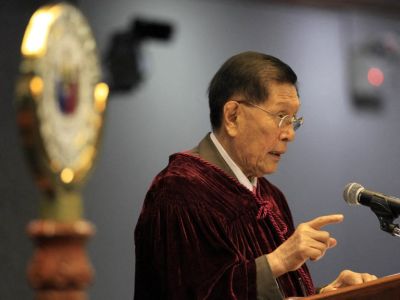By Izzat Ramini
Albawaba.com - Ramallah
The suffering of the Palestinian workers who lost their jobs in Israel after the territories were closed following the outbreak of the Intifada has surfaced lately, with all parties involved coming up with ideas to put an end to the tragic situation.
In addition to killing about two hundred Palestinians, and injuring thousands, Israeli also deprived Palestinian workers of their jobs, and left them in misery. An estimated 125,000 Palestinians were working behind the green line; all became jobless.
Hundreds of those have demonstrated at the Palestinian Legislative Council demanding support so that they could be assured the minimum to sustain life and go on with the Intifada against the Israeli occupation.
One of them, Ibrahim Hawamdeh told Albawba.com that he had not worked for 40 days, and he could no longer support his 10-member family.
Hawamdeh said he understood the current situation and did not want much from the authority. “I am ready to do any job for any payment just to earn my bread,” he said, adding he would withstand the Israeli pressures along with his colleagues.
“We want work not charity,” he stressed.
A statement by the Executive Bureau of Labor Solidarity Bloc, a gathering of labor activists, called on parliamentarians, unions and official institutions to take tangible steps towards enforcing solidarity with the unemployed workers, and demanded that they be absorbed in the public sector, which is already overstaffed.
The statement also called for the setting up of a fund to support the laborers to be financed by the five percent deducted from the salaries of civil servants since 1996, and to allocate fixed payments to the green line workers.
The Bureau also demanded that Arab countries employ a number of jobless laborers and university-trained Palestinians, echoing demands by Palestinian officials.
For their part, the Palestinian movements, who have assembled under the name Islamic and Nationalist Powers and assumed the street leadership of the Aqsa Intifada, went as far as demanding the Palestinian Authority to prohibit working in the settlements construction and to find alternative jobs for the workers.
As a temporary solution to the woes of the labor sector, the 13-faction body suggested that a day payment be deducted from the salaries of all employees in the civil service, national security forces and private sector, to go to the proposed fund.
They demanded that the deductions from the workers’ wages by the Israeli authorities that go the PNA should be rerouted to the fund. The authority should also reconsider its financial policies, abolish privileges given to certain individuals, and avoid extravagance and the wasting of public money.
They also called on the Arab labor unions to draw up a plan for the support of their colleagues in Palestine.
The Intifada leaders also demanded that the World Labor Organization secure the wages due to Palestinian workers from their Israeli employers.
Meanwhile, the Palestinian movements said that the electricity and water authorities in the Palestinian territories should allow a discount of 20 percent on Palestinians’ bills, and write off 50 percent of what the workers in question owe them. Furthermore, these workers should be covered by full medical insurance and their sons and daughters be exempted from university fees.
The PNA has not been standing helpless all that time. The Ministry of Labor proposed a plan to employ the workers on a group basis, with a fixed payment of $200 a month per worker. They would be working on farms, projects undertaken by the UNRWA and with local municipalities to help in infrastructure projects.
According to Palestinian Minister of Industry, Sadi El Krunz, the Palestinians and their leadership fully realize the nature of the fierce economic battle waged by Israel against them, and the unprecedented siege imposed upon them. He said that unemployment rates have risen from 10.5 to 45 percent with a total loss of $560 million since the outbreak of the Intifada.
Elaborating on the proposal of his ministry, Labor Minister Rafiq Natcheh said a ministerial committee would follow up on the suggested fund to support laborers.
At the Arab level, Natcheh said that the Arab ministers of Labor would meet to discuss the situation and he has already received an invitation from the Arab League secretary general, Esmat Abdel Meguid, to attend the meeting scheduled for November 22. The ministers will coordinate efforts with the Arab Labor Organization, Natcheh said.
Top on the meeting’s agenda will be finding ways to support the Palestinian labor force, and discussing a request by the Palestinian delegation to give priority to Palestinians in the jobs available in Arab markets, especially those hiring foreign labor.
Arab countries will also be asked to fund the foundation of a center for professional rehabilitation of people with special needs, many of whom became handicapped after they were injured during clashes with the Israeli forces.
© 2000 Al Bawaba (www.albawaba.com)









